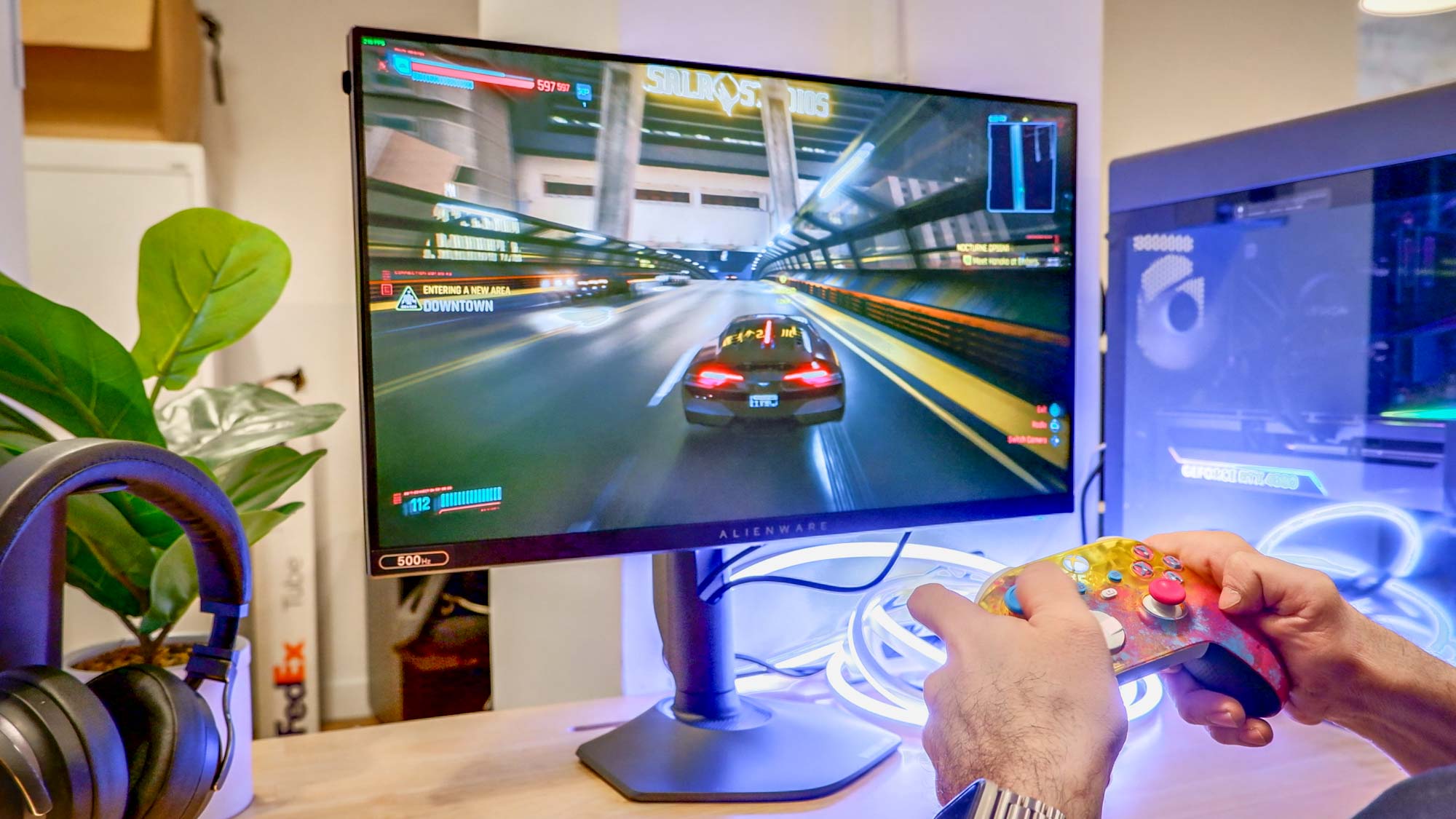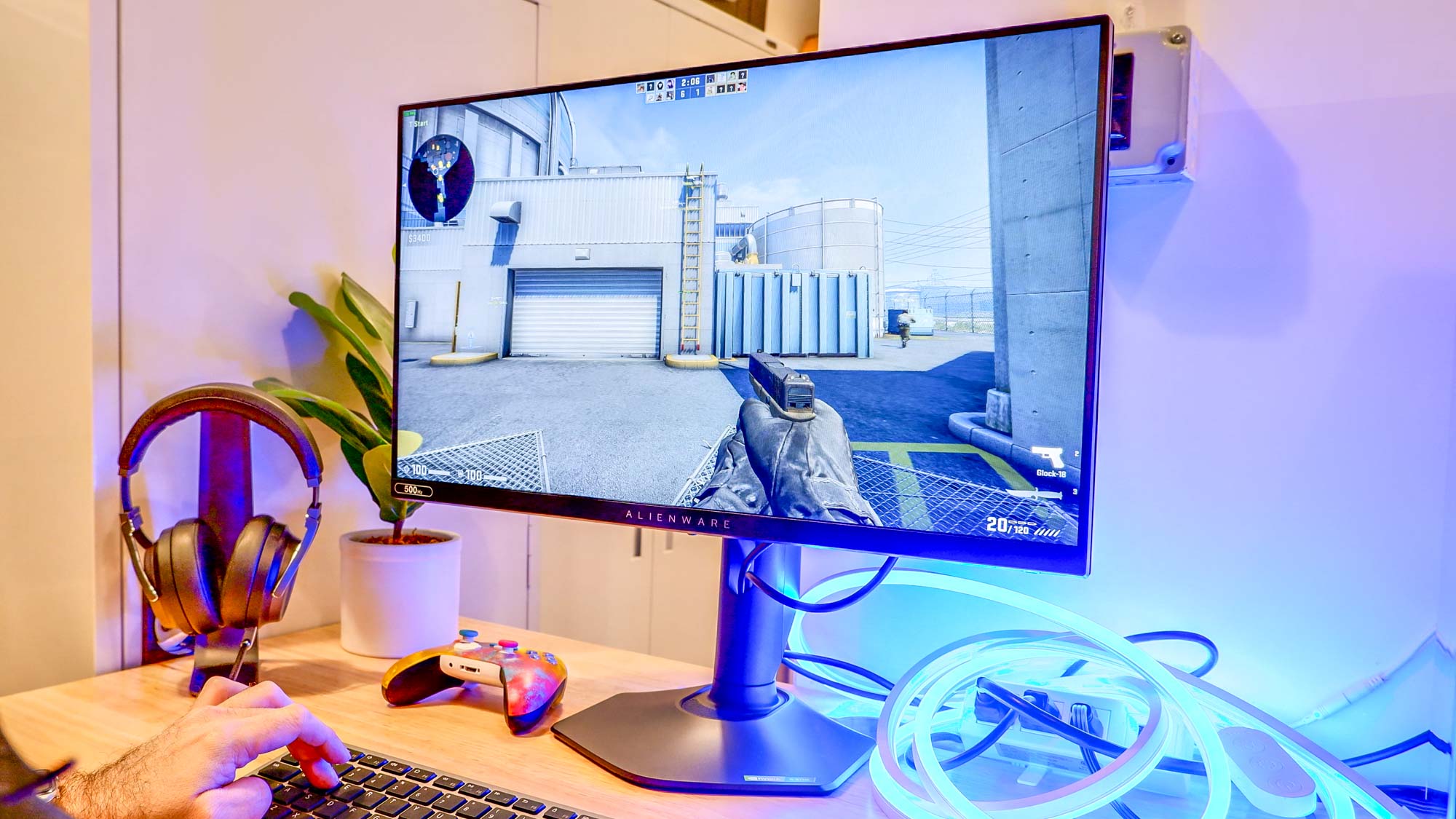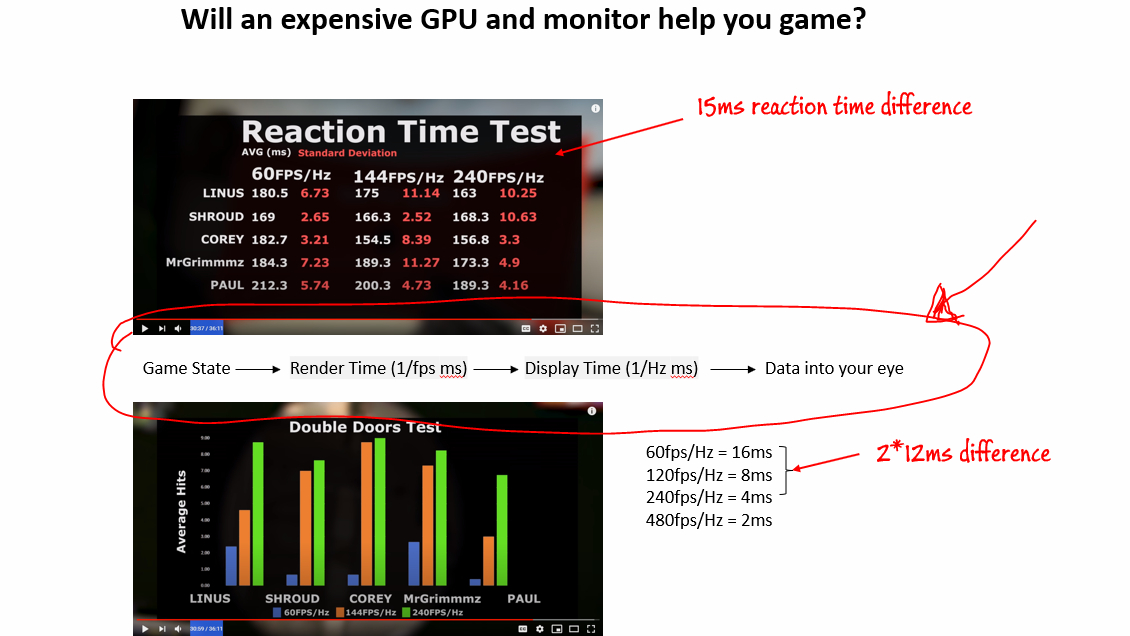Can your eyes keep up with a 500Hz gaming monitor? The answer may surprise you
Turns out speed makes a difference, even if you can't see it

We saw a slew of new monitors unveiled at CES 2025 this month, including new OLED monitors from Asus, MSI and Samsung with remarkably fast 500Hz refresh rates.
That's the fastest refresh rate I've ever seen on an OLED, and when these monitors start showing up on store shelves this year I bet they won't be cheap.
Which got me wondering: how much of a difference does a high refresh rate really make? Can the human eye even distinguish the difference between, say, 400 and 500 frames per second?
I've been passionate about video games all my life, so a buttery-smooth 60 FPS frame rate is something I've spent more time thinking about than I'd care to admit. But I've never been very particular about it, and while I appreciate the 120Hz variable refresh rate on my LG C2 OLED TV I can't really tell the difference between a game running at 60 FPS and 120 FPS just by looking at it.
But I can tell the difference when I'm playing something like Cyberpunk 2077: Phantom Liberty because it feels better to play at higher frame rates. The difference isn't all in my head, either: as frame rate increases the game can respond faster to my inputs because it's putting more frames on the screen per second, so the interval between when I input a command and when it draws a frame in response is shorter.
For some time I thought 240Hz monitors and now 500Hz monitors were pure marketing...but there is compelling evidence that it does impact gamers."
Prof. James Davis, UCSC
That should have been my first clue that I shouldn't be so dubious about the value of a 500Hz panel. Ever since Asus unveiled the world's first 500Hz gaming monitor in 2022 I've been pretty scornful of these super-fast displays because I think they're optimized for speeds that most people will never achieve or appreciate.
And after doing a bit of research, I still think that's true. But I have to admit that for some folks, especially serious players with eSports ambitions, the best gaming monitors with refresh rates in the hundreds of hertz can make a meaningful difference in terms of performance.
Sign up to get the BEST of Tom's Guide direct to your inbox.
Get instant access to breaking news, the hottest reviews, great deals and helpful tips.
Speed makes a difference, even if you can't see it

After CES 2025 I dove into researching the science of display refresh rates, and I quickly plummeted out of my depth.
I found reams of debate and research about the threshold at which our eyes stop being able to perceive changes in images, including an interesting paper published by UC Santa Cruz researchers in 2015 about how humans perceive flicker artifacts at 500 Hz.
Now to be clear, that research was being done at least in part to study how effectively stereoscopic 3D displays could work at high speeds—it was years before the first consumer-grade 500Hz displays hit the market.
But after reading through the paper and speaking briefly with lead researcher Dr. James Davis, I was directed to a performance experiment documented on the Linus Tech Tips YouTube channel that suggests high refresh rates (120+ Hz) really do make a difference when gaming.
In a video sponsored by Nvidia titled "Does High FPS make you a better gamer?" the LTT team documented the results of five players running through Counter-Strike: Global Offensive performance tests at three different frame rates: 60, 144 and 240 FPS.
You can watch the 37-minute video (embedded above) for the full story, but the short version is that the majority of players performed better at higher frame rates. One of the most interesting parts of the story is the reaction time test, in which host Linus himself documented the greatest improvement (by ~17 milliseconds) when transitioning between 60 FPS and 240 FPS.
The fact that (presumably) the least skilled CS:GO player saw the biggest performance boost of the bunch when jumping from 60 to 240 FPS suggests that high refresh rates on gaming monitors aren't just marketing hype: they really can make a (small but) meaningful difference in your performance, even if you aren't a pro player.
Professor Davis shared the video with me because it helped him reach a similar conclusion.
"For some time I thought 240Hz monitors and now 500Hz monitors were pure marketing since people don't really see this under normal conditions," Davis told me. "But there is compelling evidence that it does impact gamers, not due to flicker but because it affects the latency until data makes it from the game engine through the monitor and into your brain. This seems to affect reaction time. I haven't done that sort of experiment myself, but YouTubers have, and I in fact show a slide on this to the Intro to Computer Graphics class I teach to undergrads. "

Now to be clear, we're talking about milliseconds of difference when discussing how refresh rates change the way you play games. If you watch the YouTube video above you'll see that even some of the best CS:GO players in the world were only missing shots by a fraction of a second in these tests.
So when the refresh rate went up and the lag went down enough that their reaction time improved by a few milliseconds, it was the difference between missing and hitting a statistically significant number of shots. That suggests that, at least for pro players and those who aspire to the job, shelling out hundreds of dollars for a 480Hz or 500Hz gaming monitor does make sense.
But for the rest of us, I'm still hard-pressed to see why someone would want a 500 Hz OLED display that only does 1440p. If I had the cash to pay through the nose for a new monitor I'd go for a nice 4K OLED like the Asus Swift PG27UCDM, which my colleague Jason England raved about after using one to play a bit of Horizon Forbidden West on the floor at CES.
More from Tom's Guide

Alex Wawro is a lifelong tech and games enthusiast with more than a decade of experience covering both for outlets like Game Developer, Black Hat, and PC World magazine. A lifelong PC builder, he currently serves as a senior editor at Tom's Guide covering all things computing, from laptops and desktops to keyboards and mice.
-
Ryan F Mercer It's not about reaction time. We're talking about thousandths of a second. A faster refresh rate isn't going to increase human reaction time. The benefits are less motion blur. There are a ton of extremely in depth articles written about this and it gets very very technical. But basically, as resolution increases, so does motion blur. Higher refresh rates reduces the motion blur. So what's the highest refresh we might see benefit from? Again, depends on the resolution, but basically, if we wanted human vision level resolution with no noticeable motion blur, we would need a truly ridiculous refresh rate of something like one million frames per second. Again, reaction time has nothing to do with it. Human reaction isn't that fast.Reply

